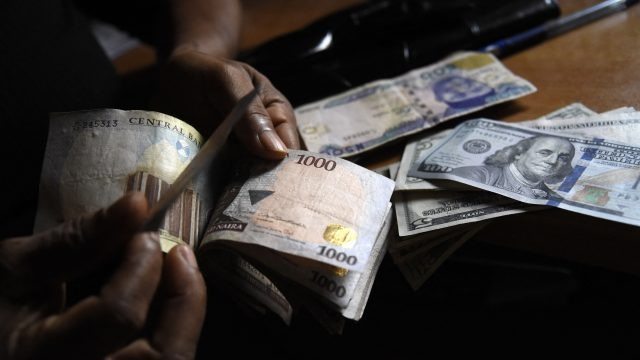Top US Firm Predicts Naira to Dollar Exchange Rate by 2028, Gives Reasons As Naira Appreciates In Parallel, Official Markets
A US-based research firm, BMI, has provided insights into the future exchange rate of the naira against the US dollar.
The research firm based its prediction on economic challenges, including Nigeria’s medical device industries, which rely on imports for over 95% of its needs.
They anticipate that the naira may experience further adjustments in the foreign exchange market in the coming years.
BMI, a subsidiary of Fitch Solutions, has predicted that the Nigerian naira will decline further to N1,993 per US dollar by 2028.
The research firm based its prediction on economic challenges, including Nigeria’s medical device industries, which rely on imports for over 95% of its needs.
The report, released on its website, highlighted that while Nigeria’s economy is projected to rebound, structural weaknesses, including a persistent naira depreciation, will intensify import costs for essential healthcare supplies.
Punch reports that BMI also noted that the weak currency would affect Nigeirians’ purchasing power and complicate access to critical medical devices.
Part of the report reads: “We expect that the naira will end 2028 at N1,993/$, down from N306/$ in 2018. As the naira weakens, the cost of importing medical devices will continually increase, impacting both the health system and patient purchasing power.”
The report titled “Weak Naira and Structural Challenges to Constrain Nigeria’s Medical Devices Market Growth” also said that the pressure will affect public health financing and the high cost of imports of medical products, especially orthopaedics and dental products.
Despite the gloom, BMI suggests that the challenges will help to increase efforts on locally manufactured medical devices.
It noted that a weaker naira could make Nigerian-made products more competitively priced internationally, encouraging export growth.
Meanwhile, the naira traded at N1,681.42 per dollar on Monday, November 11, 2024, a 15% decline from the previous trading day’s close.

 Discuss
More news
Discuss
More news


